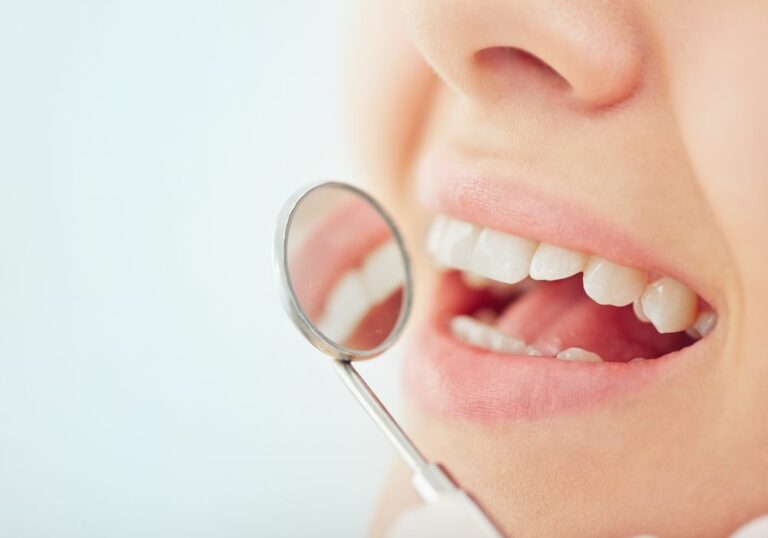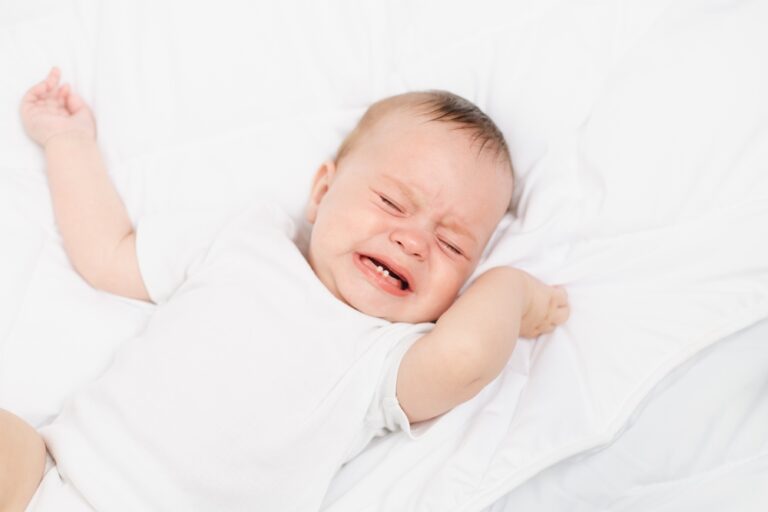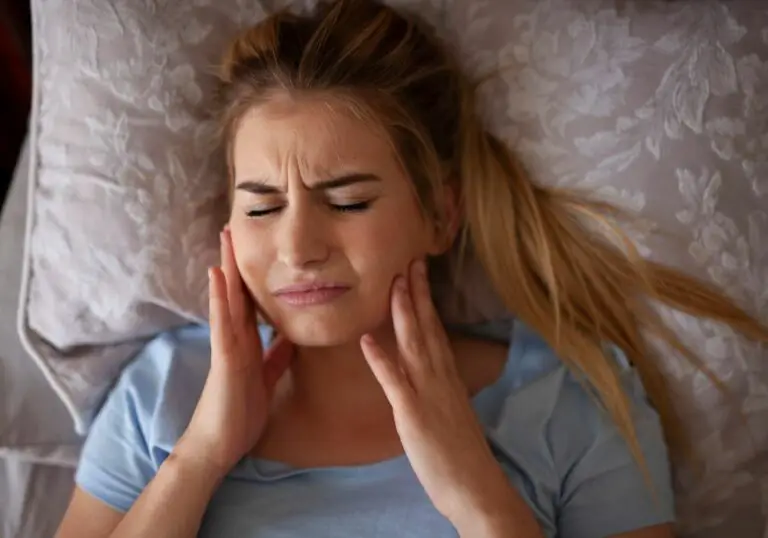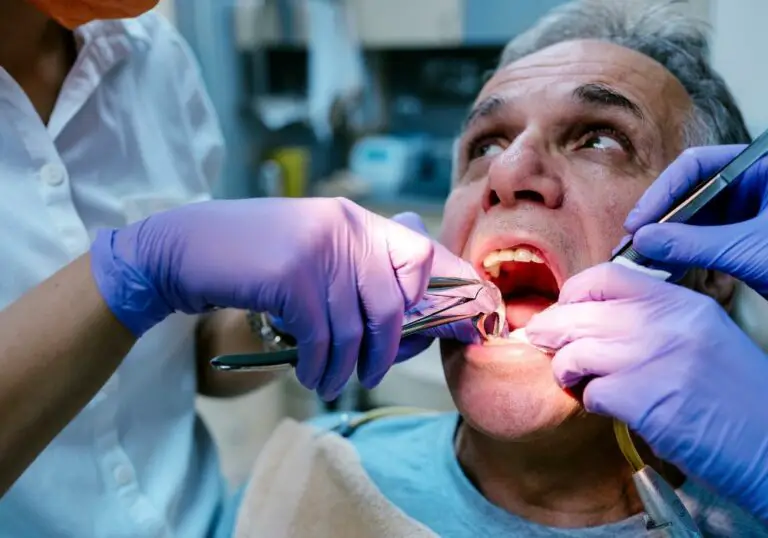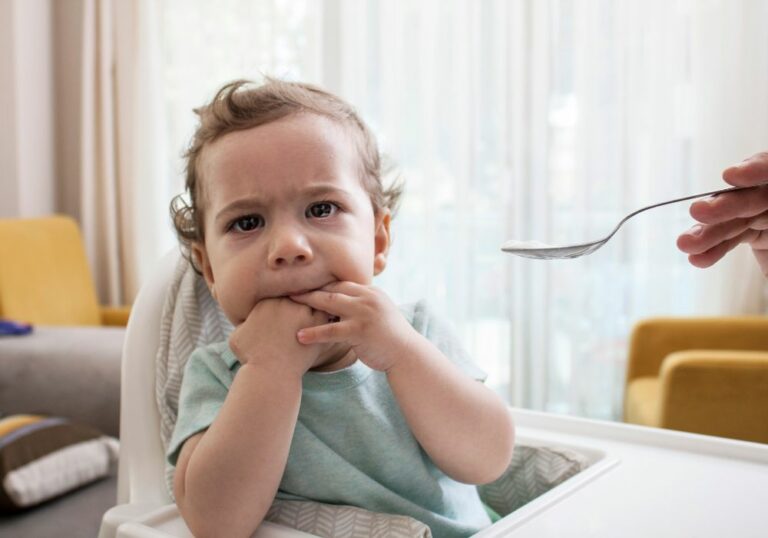If you are a rabbit owner, you may have noticed that your furry friend’s teeth are growing longer than they should be. Overgrown teeth in rabbits are a common problem that can cause discomfort and even lead to serious health issues if left untreated. Fortunately, there are steps you can take to help your rabbit with overgrown teeth.
One of the main causes of overgrown teeth in rabbits is a lack of proper chewing. Rabbits’ teeth never stop growing, so they need to constantly grind them down by chewing on fibrous foods like hay. If your rabbit is not getting enough hay or other chewable objects, their teeth can become too long and cause problems. In addition to providing your rabbit with a healthy diet, there are other ways you can help prevent overgrown teeth.
If your rabbit already has overgrown teeth, it is important to seek veterinary care as soon as possible. Signs of overgrown teeth include longer and more tusk-like teeth than usual, wetness or staining of the forelimbs, and eye and nasal discharge. Your vet can trim your rabbit’s teeth and provide advice on how to prevent the problem from happening again. With proper care and attention, you can help your rabbit stay healthy and happy despite their overgrown teeth.
Understanding Rabbit Teeth
Rabbits have unique teeth that grow continuously throughout their life. These teeth are essential for their survival, as they use them for eating and defending themselves. However, sometimes these teeth can become overgrown, causing discomfort and pain for your pet. In this section, we will discuss the growth rate of rabbit teeth and common problems associated with them.
Growth Rate
Rabbit teeth grow continuously at a rate of approximately 2-3mm per week. The growth rate can vary depending on the age, breed, and diet of the rabbit. Young rabbits have faster-growing teeth, while older rabbits have slower-growing teeth. Additionally, certain breeds of rabbits, such as the Angora, may have faster-growing teeth than others.
Common Problems
Overgrown teeth are a common problem in rabbits, and they can occur for various reasons. Some of the most common problems associated with rabbit teeth are:
- Malocclusion: This occurs when the rabbit’s teeth do not align correctly, causing uneven wear and overgrowth.
- Lack of wear: If a rabbit’s diet does not include enough roughage, such as hay, their teeth may not wear down as they should, leading to overgrowth.
- Trauma: Injuries to the mouth or teeth can cause overgrowth or misalignment of teeth.
If left untreated, overgrown teeth can cause serious health problems for your rabbit. It can lead to difficulty eating, weight loss, and even abscesses and infections.
In conclusion, understanding the growth rate and common problems associated with rabbit teeth is crucial for maintaining your rabbit’s dental health. Regularly checking your rabbit’s teeth and providing them with a balanced diet that includes plenty of roughage can help prevent overgrowth and other dental issues. If you suspect your rabbit has overgrown teeth, seek veterinary care immediately to prevent further complications.
Recognizing Overgrown Teeth
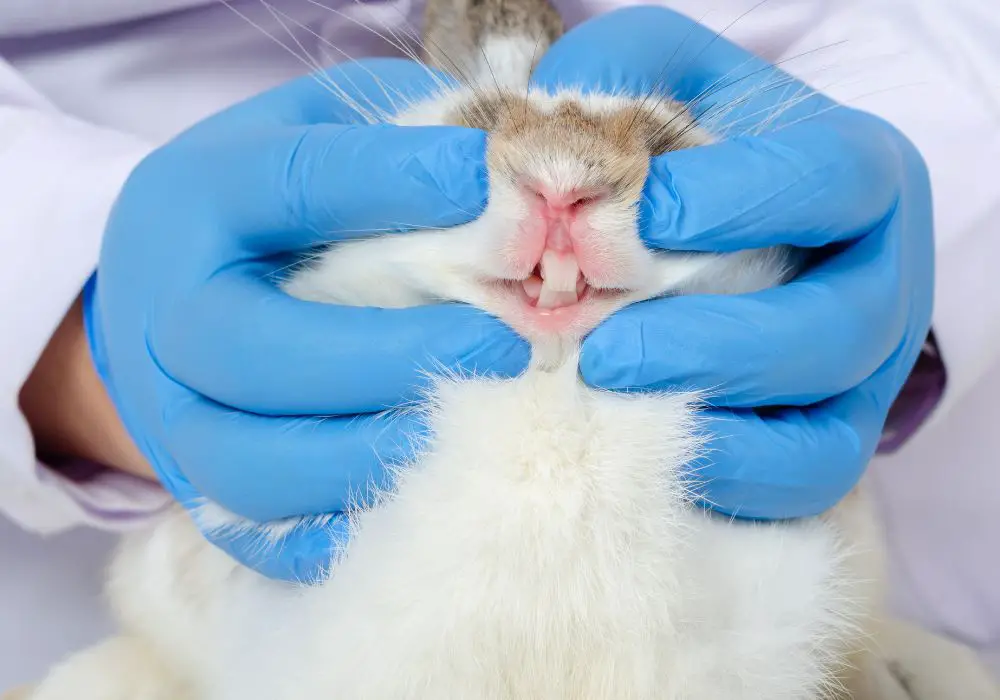
If you own a rabbit, it’s important to keep an eye out for any signs of overgrown teeth. Overgrown teeth can cause a lot of pain and discomfort for your pet, and if left untreated, can lead to serious health problems. In this section, we’ll go over some of the physical signs and behavioral changes you should look out for to recognize if your rabbit has overgrown teeth.
Physical Signs
One of the most obvious signs of overgrown teeth is that your rabbit’s teeth are longer and more tusk-like than usual. You may also notice that your rabbit has difficulty eating or drinking, as the overgrown teeth can make it hard for them to chew or swallow. Other physical signs of overgrown teeth include:
- Drooling
- Weight loss
- Swelling around the mouth or jaw
- Bad breath
- Eye problems, such as tearing or discharge
If you notice any of these physical signs, it’s important to take your rabbit to a veterinarian as soon as possible.
Behavioral Changes
In addition to physical signs, overgrown teeth can also cause behavioral changes in your rabbit. For example, your rabbit may become more irritable or aggressive due to the pain and discomfort caused by the overgrown teeth. They may also stop grooming themselves, which can lead to a matted or dirty coat. Other behavioral changes to look out for include:
- Loss of appetite
- Hiding or avoiding interaction with humans or other animals
- Lethargy or lack of energy
- Difficulty breathing
If you notice any of these behavioral changes in your rabbit, it’s important to take them to a veterinarian to get their teeth checked out.
In summary, recognizing the physical signs and behavioral changes associated with overgrown teeth is crucial for maintaining the health and well-being of your rabbit. If you notice any of these signs, take your rabbit to a veterinarian as soon as possible to get their teeth checked out.
Professional Care
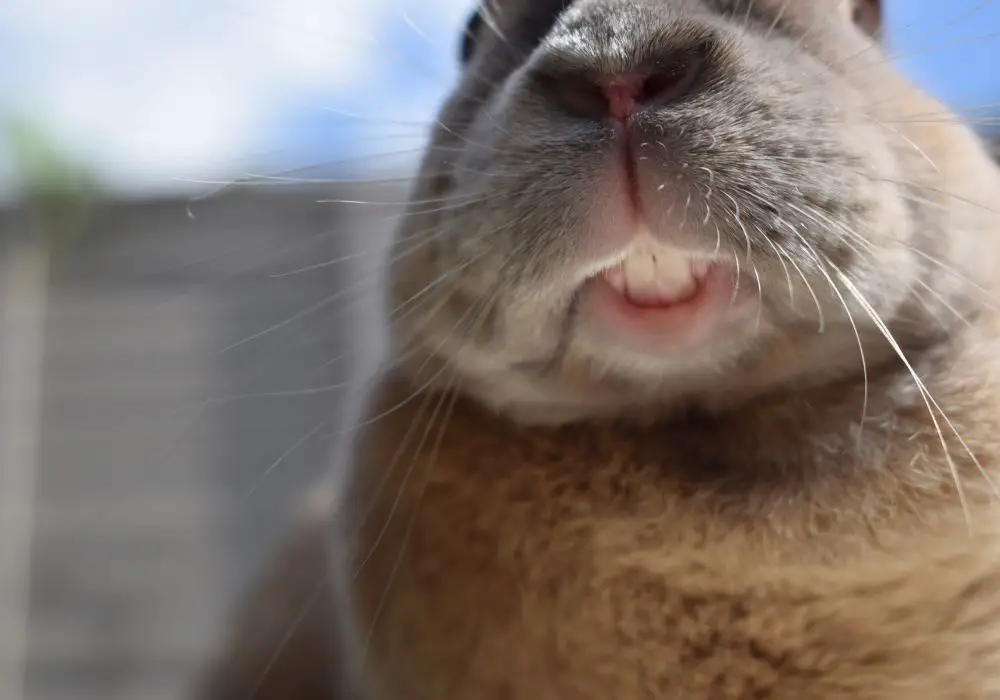
If your rabbit has overgrown teeth, it is important to seek professional care from a veterinarian who specializes in rabbit care. Here are some options for professional care:
Veterinary Treatment
A veterinarian can help diagnose and treat your rabbit’s overgrown teeth. They may use a variety of methods to trim the teeth, including:
- Burr or dental drill: This tool is used to gently file down the teeth to the correct length.
- Dental scissors: These are used to trim the teeth to the correct length.
- Dental burr: This tool is used to grind down the teeth to the correct length.
Your veterinarian may also prescribe pain medication or antibiotics if your rabbit has any infections or pain associated with their overgrown teeth.
Regular Check-ups
Regular check-ups with a veterinarian can help prevent overgrown teeth in rabbits. During these check-ups, your veterinarian can examine your rabbit’s teeth and make sure they are growing correctly. They can also give you advice on how to maintain your rabbit’s teeth at home.
It is recommended that you take your rabbit for a dental check-up at least once a year. During these check-ups, your veterinarian may recommend a dental cleaning or other preventative measures to keep your rabbit’s teeth healthy.
In addition to regular check-ups, it is important to provide your rabbit with a healthy diet and plenty of opportunities to chew. A diet high in hay can help keep your rabbit’s teeth healthy and prevent overgrowth. Providing your rabbit with chew toys and other items to gnaw on can also help keep their teeth healthy.
Home Care
Taking care of your rabbit’s overgrown teeth at home is an essential part of their health routine. Here are some tips to help you care for your rabbit’s teeth at home.
Safe Chewing Materials
Providing your rabbit with safe chewing materials is an essential part of preventing overgrown teeth. Here are some safe materials that your rabbit can chew on:
- Hay: Hay is an excellent material for your rabbit to chew on. It is high in fiber and helps to grind down your rabbit’s teeth.
- Wooden toys: Wooden toys are an excellent option for your rabbit to chew on. They are safe and help to keep your rabbit’s teeth healthy.
- Cardboard: Cardboard is another safe material for your rabbit to chew on. It is also an excellent way to keep your rabbit entertained.
Proper Diet
Your rabbit’s diet plays a significant role in their dental health. Here are some tips to help you provide your rabbit with a proper diet:
- Hay: As mentioned earlier, hay is an essential part of your rabbit’s diet. It is high in fiber and helps to grind down your rabbit’s teeth.
- Fresh vegetables: Fresh vegetables are another essential part of your rabbit’s diet. They provide your rabbit with the necessary nutrients to keep their teeth healthy.
- Pellets: Pellets are another part of your rabbit’s diet. However, it is important to make sure that your rabbit is not overeating pellets as they are high in calories.
By providing your rabbit with safe chewing materials and a proper diet, you can help prevent overgrown teeth. However, it is important to monitor your rabbit’s teeth regularly and seek veterinary care if you notice any signs of overgrown teeth.
Prevention Tips
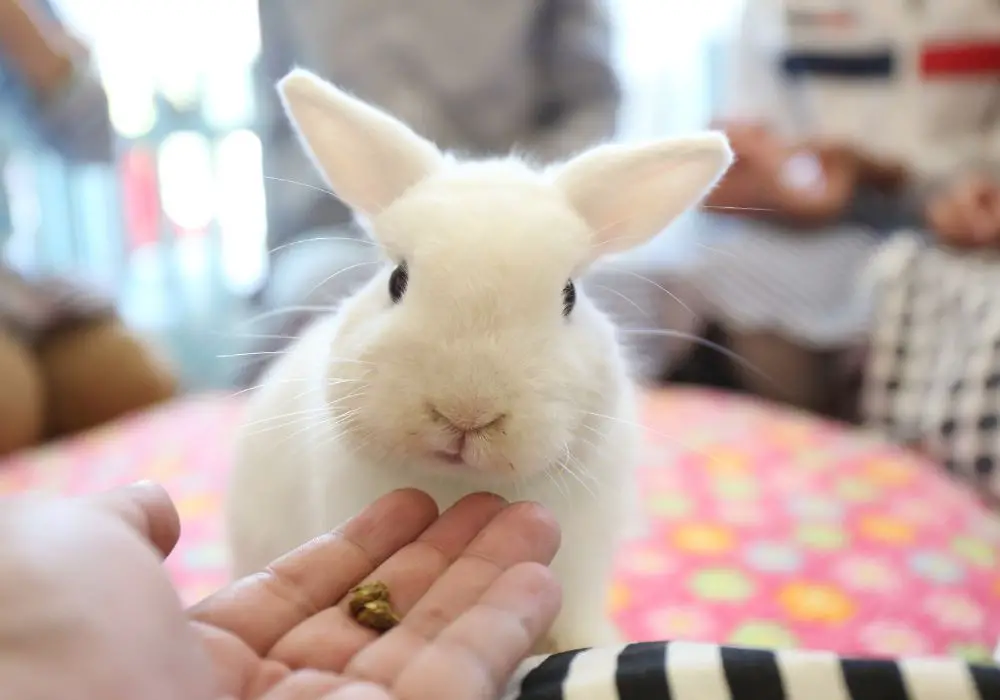
Preventing overgrown teeth in rabbits is much easier than dealing with them once they have already occurred. Here are some tips that can help you prevent overgrown teeth in your rabbit:
Feed Your Rabbit a Healthy Diet
A healthy diet is essential for keeping your rabbit’s teeth in good condition. Rabbits need a diet that is high in fiber, so make sure that your rabbit gets plenty of hay, fresh vegetables, and fruits. Avoid feeding your rabbit too many sugary treats or processed foods, as these can contribute to dental problems.
Provide Chew Toys
Rabbits love to chew, and providing them with plenty of chew toys can help keep their teeth healthy. Try giving your rabbit wooden blocks, cardboard tubes, or other safe items to gnaw on. Avoid giving your rabbit anything that is too hard or could splinter, as this can cause dental problems.
Regularly Check Your Rabbit’s Teeth
Regularly checking your rabbit’s teeth can help you catch any problems early on. Look for signs of overgrown teeth, such as longer or more tusk-like teeth than usual. You should also check for any signs of dental disease, such as redness or swelling around the gums.
Visit Your Vet Regularly
Regular visits to the vet can help ensure that your rabbit’s teeth are in good condition. Your vet can check your rabbit’s teeth and provide you with advice on how to keep them healthy. They can also trim your rabbit’s teeth if necessary.
By following these prevention tips, you can help keep your rabbit’s teeth healthy and prevent overgrown teeth from occurring.
Frequently Asked Questions
How can I trim my rabbit’s overgrown teeth at home?
Trimming your rabbit’s overgrown teeth at home is not recommended. It can be dangerous and cause further damage to your rabbit’s teeth. It is best to take your rabbit to a veterinarian who is experienced in treating rabbits.
Can rabbits eat normally with overgrown teeth?
Rabbits with overgrown teeth may have difficulty eating, lose weight, and develop other health problems such as gastrointestinal stasis. It is important to seek treatment from a veterinarian as soon as possible to prevent further complications.
What are the risks of not treating overgrown teeth in rabbits?
If overgrown teeth are not treated, rabbits may experience difficulty eating, weight loss, and other health problems such as gastrointestinal stasis. In severe cases, overgrown teeth can grow into the jawbone, causing infection and abscesses.
What are some signs that my rabbit has overgrown teeth?
Signs that your rabbit may have overgrown teeth include difficulty eating, weight loss, drooling, and a decrease in grooming. Your rabbit may also have difficulty closing its mouth or may have a decreased appetite.
What is the cost of treating overgrown teeth in rabbits?
The cost of treating overgrown teeth in rabbits can vary depending on the severity of the condition and the veterinarian’s fees. It is important to seek treatment from a veterinarian who is experienced in treating rabbits to ensure the best possible outcome for your pet.
Is it safe to trim my rabbit’s teeth myself or should I see a vet?
Trimming your rabbit’s teeth yourself can be dangerous and cause further damage to your rabbit’s teeth. It is best to take your rabbit to a veterinarian who is experienced in treating rabbits to ensure the best possible outcome for your pet.

